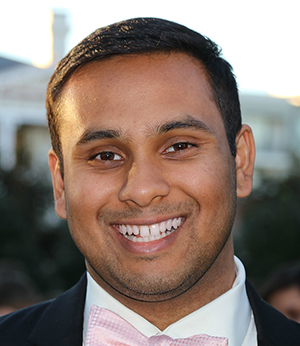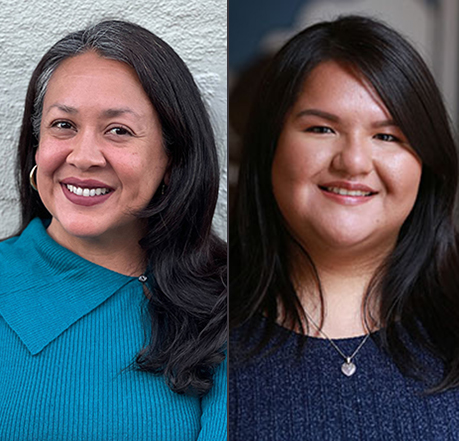What We're Reading: Community Safety Edition
When we ask our grantees what they want for themselves, their families, and their communities, they often say one word: safety. That is why – during a time when the national conversation on solutions to harm is embroiled in heated debate – our guiding star continues to be organizing towards interventions that center safety outside of the carceral punishment system.
It can be challenging to think beyond policing and incarceration because they have such an outsized footprint in American life. Whether the immediate crisis is yet another killing of an unarmed Black person at the hands of police, an uptick in hate crimes against the AAPI (Asian American and Pacific Islander) community or gendered and/or sexualized violence, it is crucial that we prioritize new grantmaking strategies. Our approach must shift power away from structures of oppression that conflate punishment with safety to frontline, BIPOC-led organizing that truly centers the voices, needs and power of the communities most affected.
A Different Approach to Community Safety
At The Libra Foundation and Democracy Frontlines Fund, our approach to liberation is rooted in the fact that movements are intersectional and cross-cutting. If we truly believe that a world where community-led systems of accountability, healing, and transformative justice should replace the carceral system, it is imperative to view our work through an inclusive lens. Patriarchy, racism, white supremacy, misogyny, transphobia and homophobia make all communities less safe. For this reason, we center our funding strategy on grassroots organizations supporting community-led solutions to safety, violence prevention, and transformational justice, mostly led by and for those most impacted by systemic racism, exploitation, and extraction.
Reimagining Public Safety
Our job as funders is to help fuel the work of organizations operating in service of community-led frameworks; to build relationships and trust; to learn from and be in service to the leadership of these advocates, organizers and new worldbuilders.
To understand why a world without policing and punishment benefits us all, consider these facts about the current carceral system. Less than half of survivors of domestic violence call the police, and the number is even lower for survivors of sexual violence. In a 2015 survey, the National Domestic Violence Hotline found that 80% of survivors are afraid to call the police, 30% of survivors felt less safe after calling the police, and 24% of survivors who called the police were arrested or threatened with arrest. Further, national survey data show that most survivors support violence prevention, social investment, and alternatives to incarceration that address the root causes of crime, not more investment in carceral systems that cause more harm.(1) These facts are exacerbated in the experience of people of color, low-income and disabled people.
Despite the overwhelming evidence(2) that policing and incarceration do not in fact reduce crime, many put their faith in punishment and prisons because they cannot envision a world without a police presence. This view can be attributed in part to the disproportionate funding police receive in local, state and federal spending giving them outsized power, especially in BIPOC communities. More than $100 billion a year is dedicated to law enforcement in the US.(3) In fact, even as the 50 largest U.S. cities reduced their 2021 police budgets by 5.2% in aggregate—often as part of broader pandemic cost-cutting initiatives—law enforcement spending as a share of general expenditures rose slightly to 13.7% from 13.6%.(4)
We also know that policing disproportionately harms people of color and marginalized communities. How can a system with so little trust and which consumes so many resources that could otherwise fund schools, health care, food systems, counseling or job training be the answer to safer communities, states or our nation? It can’t, but funding forward-looking organizations like Critical Resistance, Freedom Inc., and Communities Transforming Policing Fund gets us closer to our goal of every community thriving, regardless of their proximity to wealth or whiteness.
With all of this in mind, we wanted to share some perspectives and resources that we are engaging with to stay current on and motivated to stay in this fight for true justice and community safety. Even if you're skeptical, we encourage you to look at the following links:
1. Defund Police
Policing in the U.S. began as a system of economic, social, racial, patriarchal, and ableist control. | Project Nia & Blue Seat Studio
2. What About the Rapists?
Sexual violence won't be solved by ‘reimagining’ policing — the problem is policing itself. | Interrupting Criminalization
3. Community Accountability: Emerging Movements to Transform Violence
Community accountability and community-based approaches challenge us to seriously address violence and intimate harms without reproducing the technologies of individualization, pathology, penality, protection under the authority of heteropatriarchy and white supremacy, and criminalization, all of which continually deny and subvert our notions of safety and justice. | Social Justice Journal Issue
4. Anti-Trans Laws Aren’t Symbolic. They Seek to Erase Us From Public Life
The trans politics of Black and brown women have been about mutual aid and abolition since the 1970s for a reason. They have proven to be the only people unafraid to consistently care for and love trans kids without using them as moral props. | Jules Gill-Peterson, Them.us
5. How I Became a Police Abolitionist
When people dismiss abolitionists for not caring about victims or safety, they tend to forget that we are those victims, those survivors of violence. | Derecka Purnell, The Atlantic
6. 6 D's Until She's Free
We’re going to end the incarceration of women and girls. | Interrupting Criminalization, YouTube
7. Ruth Wilson Gilmore on Abolition
Where life is precious, life is precious. | Intercepted






